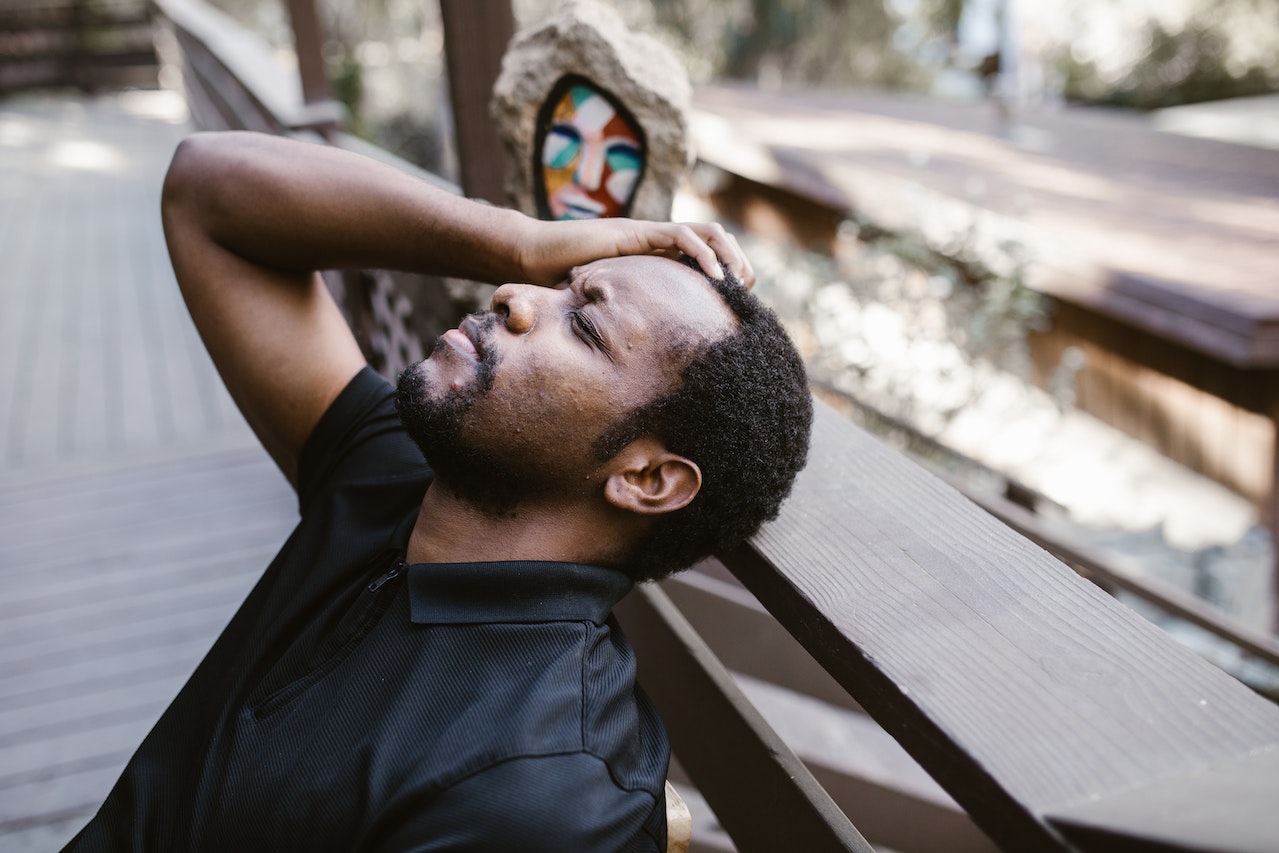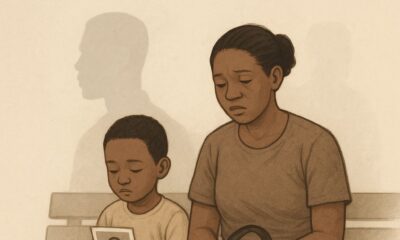Features
Sometimes, You Don’t Have to Be Strong
…when grief becomes too big and heavy, it tears through your skin, shatters your bones and leaves you a wreck.

The green leaves succumbing to the wave of the breeze, the sun showering down its hot terror and a countable number of students walking on and off sight were those I could see as I walked through the lawn of my faculty’s class area with my handkerchief wrapped around my wrist. I fumbled with the handkerchief as I walked into a class. Inside, I met two girls seated in the last column of the second row. One kept swiping through her phone and the other placed her head on the table. I sat in the front and brought out a book, not to read but to place my laptop on for convenience because I wanted to see a movie.
While selecting a movie, I started hearing soft sobs. I looked back and noticed nothing. The girls were how they were: one still scrolling through her phone, the other’s head on the table. But the sob was so persistent that I couldn’t shake it off. I looked back again and my eyes met with the lady scrolling through her phone. She read the curiosity on my face and rolled her eyes.
“Hi, do you know your friend is crying?” I asked.
“Yes,” she said.
“Why is she crying? Is something bothering her?”
“She has to,” she responded.
It was the first time I saw someone being left alone to cry. I thought about how many times I wanted to cry but bottled it because I didn’t want to expose my vulnerability. There were days when moments got to me and I wanted to cry before my friends but couldn’t. A friend might hold me by my shoulder and say, “don’t cry.” I hate being the object of pity.
I have been thinking about this line by Ocean Vuong I saw while reading an essay: The body is a blade that sharpens by cutting. For the body to be strong, it has to be broken into fragments, like an iron that has to be melted for it to solidify. When we tell people not to cry or be strong in distress, we are denying them the opportunity to soften themselves enough to gain strength. I was sitting at my desk one day and I just found tears falling down my cheeks. I had been engulfed in thoughts that I didn’t know when I started crying. As the tears rolled down my cheeks, I pushed everything on the table to a side and placed my head on it to allow them to fall properly.
Maybe it is not okay to be strong when we are at our lowest moments. Maybe it is not okay to tell people to be strong every time we see them falling. Maybe they have to succumb to the moment, to break down and shed off everything from their bodies before picking up the pieces again. When we tell them to be strong, we are simply telling them to hold grief in their body. And grief grows and grows until you have no power to hold it in anymore.
People, as I read somewhere, say what doesn’t kill you makes you stronger but, lately, I’ve been thinking that being strong isn’t entirely a good thing. Nor is resilience. We tend to assume these things are unalloyed positives but, really, they are value-neutral. There is a kind of strength and resilience that no one should have.
There are moments when you don’t need to be strong but cry. You don’t have to bottle up emotions and you need to let the tears flow. It is what I tell myself whenever I get overwhelmed. I sit down and let the tears fall from my face. I am not frail or powerless; the situation is simply bigger than me at that moment.
Whatever was making the girl in the class cry was probably bigger than her and she had to succumb to it. She could have pretended to be strong. Her friend could have pestered her to stop crying. But they both understood that the situation demanded she succumbed to the tears. It is a bold thing to be strong but what happens when the situation threatens to break you? What you were strong for today finds a home in your body. And when they all become too big and heavy, they tear through your skin, shatter your bones and leave you a wreck.
***





















